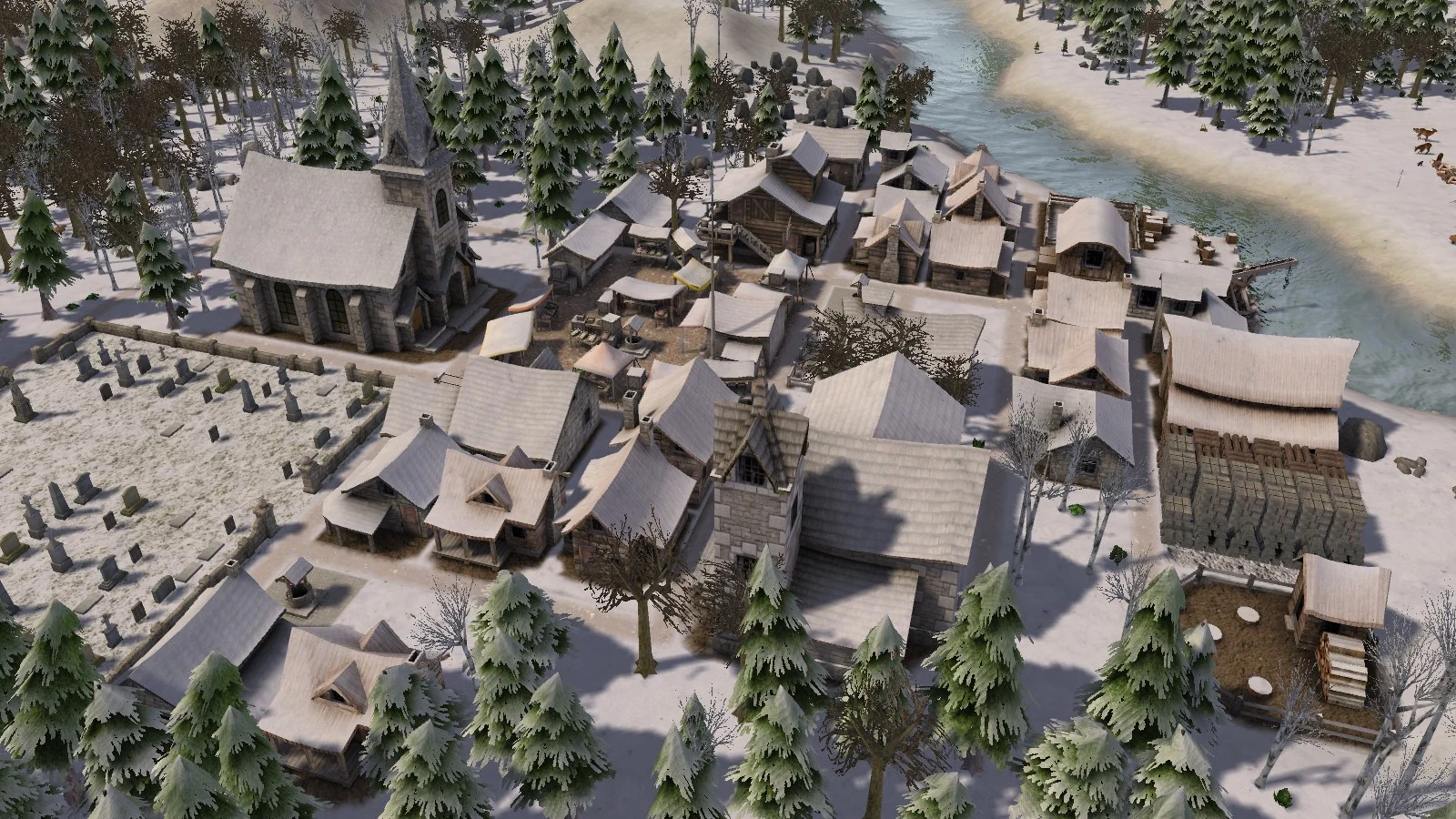Building and strategy games are a popular genre of video games that require players to plan and implement strategies to achieve specific goals. These games often involve constructing and managing virtual cities, armies, or civilizations, and require players to make decisions about resource allocation, infrastructure development, and military tactics. Building And Strategy Games: Test Your Planning Skills offer an engaging and challenging experience for players who enjoy using their analytical and strategic thinking skills to overcome obstacles and achieve success in the game world.
These games provide an immersive and interactive experience that allows players to take on the role of a leader or commander, making decisions that impact the virtual world they are responsible for. Building And Strategy Games: Test Your Planning Skills also offer a dynamic and ever-changing gameplay experience, as players must adapt their strategies to respond to changing circumstances and competing players or factions. Additionally, these games often feature detailed and realistic environments, as well as complex systems of rules and mechanics that players must master in order to succeed. Overall, Building And Strategy Games: Test Your Planning Skills provide a stimulating and intellectually rewarding form of entertainment for players of all ages.
1. What are Building and Strategy Games?
Building and strategy games are a genre of video games that focus on planning, resource management, and decision-making. These games often require players to build and expand a virtual world or empire, while also strategically managing their resources and military forces to achieve specific goals or objectives.
Players must carefully consider their actions and anticipate the consequences of their decisions, as the success of their virtual civilization or kingdom depends on their strategic planning and tactical prowess. Building and strategy games can range from city-building simulations to real-time strategy games set in historical or fantastical settings.
2. Popular Examples of Building and Strategy Games
Some popular examples of building and strategy games include titles such as “Civilization VI,” “Age of Empires II,” “SimCity,” “Stardew Valley,” “Anno 1800,” and “Total War: Three Kingdoms.” Each of these games offers unique gameplay mechanics and settings, allowing players to engage in different types of strategic challenges and experiences.
Whether it’s managing a city’s infrastructure, leading a civilization through the ages, or commanding armies in epic battles, building and strategy games offer a diverse range of gameplay experiences for players to enjoy.
3. Key Elements of Building and Strategy Games
Building and strategy games typically incorporate several key elements, including resource management, city or empire building, technological advancement, and military tactics. Players must carefully allocate resources such as food, materials, and currency to support their growing population and infrastructure, while also researching new technologies to enhance their capabilities.
In addition, players often engage in diplomacy, trade, and warfare with other in-game factions or players, requiring them to devise cunning strategies to outmaneuver their opponents and achieve victory. These elements combine to create complex and immersive gameplay experiences that challenge players’ planning and decision-making skills.
4. The Importance of Planning in Building and Strategy Games
Planning is a crucial aspect of building and strategy games, as players must carefully consider their long-term goals and the steps needed to achieve them. Whether it’s expanding their territory, developing new technologies, or preparing for military conflicts, effective planning is essential for success in these games.
Players must weigh the benefits and drawbacks of each decision they make, as well as anticipate potential obstacles or threats that may arise. By thinking ahead and formulating strategic plans, players can position themselves for success and overcome the various challenges they encounter throughout the game.
5. Building and Strategy Games as a Test of Decision-Making Skills
Building and strategy games serve as a test of players’ decision-making skills, requiring them to evaluate numerous options and choose the most advantageous course of action. Every decision, whether it’s allocating resources, constructing buildings, or engaging in diplomacy, can have far-reaching consequences that impact the overall success of the player’s virtual civilization or empire.
Players must weigh the potential risks and rewards of their decisions, as well as adapt to unforeseen circumstances that may arise. This constant need to make informed and strategic choices challenges players to think critically and develop their decision-making abilities throughout the game.
6. The Appeal of Building and Strategy Games for Planning Enthusiasts
Building and strategy games appeal to planning enthusiasts due to their emphasis on long-term strategy, resource management, and complex decision-making. Players who enjoy meticulously organizing and optimizing their virtual domains will find satisfaction in the detailed planning and execution required to succeed in these games.
Furthermore, the challenge of overcoming obstacles and outwitting opponents through careful planning and foresight provides a rewarding experience for those who relish strategic thinking and problem-solving. Building and strategy games offer a playground for planning enthusiasts to test their skills and creativity in shaping virtual worlds and civilizations.
7. The Educational Value of Building and Strategy Games for Planning Skills
Building and strategy games offer educational value for players looking to enhance their planning skills. These games require players to analyze complex situations, make strategic decisions, and consider the long-term implications of their actions, all of which are valuable skills in real-world planning and decision-making.
Additionally, building and strategy games often incorporate historical or economic elements, providing players with opportunities to learn about different time periods, cultures, and management principles. Through engaging with these game mechanics, players can develop a better understanding of strategic planning and its real-world applications.
8. Multiplayer and Competitive Aspects of Building and Strategy Games
Many building and strategy games offer multiplayer modes or competitive gameplay, allowing players to test their planning and strategic skills against others. Whether it’s engaging in diplomatic negotiations, forming alliances, or engaging in intense military conflicts, multiplayer modes add another layer of complexity and challenge to the planning aspects of these games.
Competing against other players requires not only strategic prowess but also adaptability and the ability to anticipate and counter opponents’ moves. This dynamic and unpredictable environment provides an exciting opportunity for players to showcase their planning abilities and compete against others in a virtual arena.
9. The Role of Creativity in Building and Strategy Games
Building and strategy games also offer opportunities for creativity, as players are often tasked with designing and customizing their virtual cities, empires, or armies. From architectural layouts and urban planning to military formations and battle strategies, players can express their creativity through the decisions they make and the designs they implement within the game world.
This aspect of creativity adds another dimension to the planning process, as players not only have to consider the practical and strategic implications of their choices but also have the freedom to express their unique vision and style within the game. The combination of planning and creativity contributes to the immersive and engaging nature of building and strategy games.
10. The Future of Building and Strategy Games and Their Impact on Planning Skills
As technology continues to advance, building and strategy games are likely to become even more immersive and complex, offering new challenges and opportunities for players to hone their planning skills. The integration of artificial intelligence, virtual reality, and other innovations may further enhance the depth and realism of these games, providing players with increasingly intricate planning scenarios to navigate.
Furthermore, the skills developed through playing building and strategy games, such as strategic thinking, decision-making, and adaptability, are transferable to various real-world contexts, making these games a valuable tool for honing planning skills. As a result, building and strategy games are not only a source of entertainment but also a means for individuals to refine their planning abilities and strategic mindset.
| Game | Genre | Platform |
|---|---|---|
| Age of Empires | Real-time strategy | PC |
| Minecraft | Survival, Sandbox | Multi-platform |
| SimCity | City-building | PC, Console |
| Civilization | Turn-based strategy | PC, Console |



